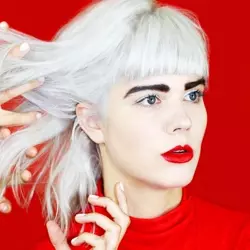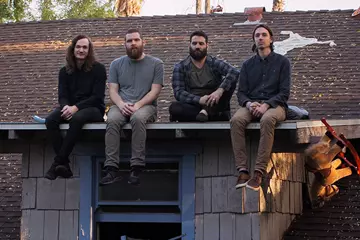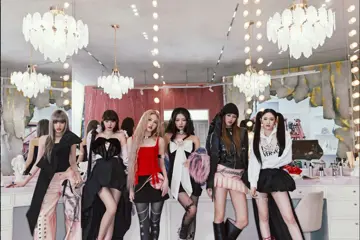 Bec Sandridge
Bec SandridgeBec Sandrige has come a long way from the "timid" 18-year-old who, while soul searching on a Euro trip, wandered down Buchanan Street in Glasgow and happened upon a busking duo that would permanently change her trajectory.
Australian singer-songwriter Stu Larsen and a scruffy-haired Michael Rosenberg — who the world would soon know as Passenger, with Let Her Go about to crack #1 in 22 countries — invited young Sandridge along on their tour. Torn between toting the four tracks she had up her sleeve around the UK and heading back Down Under to commence uni, she did the only thing a teenager in her position could do — she called home. "Mum was like, 'You should defer!' and I was like, 'You're the best, worst parent alive!'" she laughs over a kerfuffle at Sydney airport where Sandridge and co are playing Tetris with their equipment and a car boot.
Her first experiences performing were "pretty awful. I'm such a nervous Nelly as it is, let alone speaking or singing into a microphone. I'm very self-trained with the whole singing thing. Weirdly, performing is the only time I ever feel 100% comfortable," she reveals.
Humble beginnings find a fourth grade Sandridge at Stanwell Park Primary School being handed "the daggiest instrument alive" — the trombone, "because I'm lanky," she jokes. "As a result I kind of hated music! I didn't touch anything musical until Year Nine — I wanted to learn drums and my parents were like, 'Let's pick something a bit quieter,' so I bought a really tacky blue guitar off eBay and the guy across the road taught me the whole back catalogue of Blink-182 and I loved it."
"When I started out I was definitely very timid and I was scared of taking space, scared of making a statement."
Don't miss a beat with our FREE daily newsletter
Her most recent EP In The Fog is a far cry from the gentle, folk-driven strumming of her previous releases. "I think when I was starting out I only knew how to play guitar, so I only created from what I knew... I hadn't discovered the sounds that really excited me, like, the first ones were really gritty and disgusting '80s synths or big mechanical drums," she explains. "When I started out I was definitely very timid and I was scared of taking space, scared of making a statement, where as now I'm very much like 'This is what I do, this excites me the most', and if people don't like it then that's awesome because that's what art is meant to do — it's mean to polarise people. I feel a lot more excited by the idea of causing a reaction."
With a "thick skin" and passion for her art, Sandridge was readily armed for the recent onslaught of online criticism following her now-infamous Like A Version of John Farnham's You're The Voice. "A lot of comments were saying 'someone should stab her in the throat' or 'someone should burn her eyebrows'. There was comments about my sexuality, comments saying, 'She's not gonna get any guys with this kind of voice.' I think it's actually opened up a really interesting and great conversation around misogyny and women in the music industry," she explains. "It's kinda scary that artists are creating and putting themselves out there and choosing to make bold decisions and people are cutting it down... When you're making these comments it makes people wanna give up and it makes people stop creating, which is really sad because it's stagnating the industry, it's stagnating people who are creating and giving it a go. It puts a container on art and on people to make boring art. It's really important... to keep in mind that artists do read these comments and that they're human. It's fine to not like something, but the moment it becomes violent and derogatory that's not okay."
Sandridge makes it clear that she won't play into anything that homogenises Australian music — "especially indie-pop" — and continues to merge her artistic expression across all areas of her branding, from video clips to online art competitions. Case-in-point, the '80s colour-blocked, Kraftwerkesque You're A Fucking Joke clip directed and produced by Imogen Grist. "I wanted it mechanical, an element where humans were robotic, and I think, perchance, a lot of the comments have been about how the men are to the back of the video clip. Feminism for me is really important and I think that message flips through, which is awesome. Guys are kinda these mannequins; pared-back figures in the film clip, and so often it's women who are in the background just dancing like robots. [The extras] were all spunks. When I turned up I was like, 'Oh my goodness this is bad, they're all so beautiful!'"















